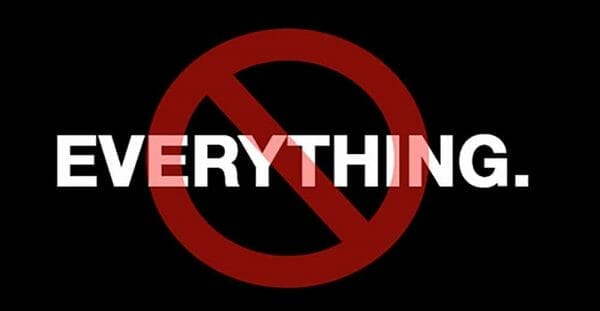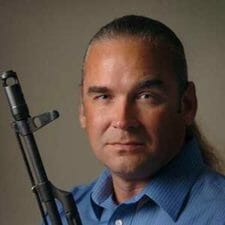
The small town of Pawlet, Vermont – population 1,386 – has been feuding with Daniel Banyai for years over two shooting ranges he built on the 30-acre property he’s owned since 2013.
Neighbors complained about the noise and said Banyai and his friends were “super scary.” Town officials said Banyai built structures on his land without applying for any zoning permits.
In 2021 Banyai told the Associated Press his property, which he calls Slate Ridge, is a “safe and environmentally friendly place for people to discharge their firearms.”
None of that mattered to Pawlet town officials. After their initial zoning efforts failed, they sued Banyai in Vermont’s Environmental Court, which ordered him to remove the unpermitted structures and earthen berms within 135 days. Banyai ignored the ruling, and in February, the Environmental Court held Banyai in contempt of court. He has been racking up civil fines at the rate of $200 per day ever since.
“Respondent has demonstrated a willfulness, perhaps even an enthusiasm, for disregarding the Town’s Bylaws, this Court’s Orders, and the authority of the Judiciary,” Vermont Environmental Court Judge Thomas Durkin said in his order.
Attempts to contact Banyai for this story were unsuccessful.
Lawfare
After municipal and environmental laws failed, town officials approached Vermont State Senator Phillip Baruth for help. He quickly sponsored a bill making it a felony to operate a “paramilitary training camp” within the state.
Baruth, a liberal Democrat from Burlington, admitted he introduced the bill after Pawlet officials complained there was no state law that they could use to force Banyai to shutter his private ranges on his private property.
This week, Vermont’s Gov. Phil Scott – a Republican – signed the bill into law.
4071. PARAMILITARY TRAINING PROHIBITED
(a) A person shall not:
(1) teach, train, or demonstrate to any other person the use, application, or making of a firearm, explosive, or incendiary device capable of causing injury or death, or techniques capable of causing injury or death to persons, if the person knows or reasonably should know that the teaching, training, or demonstrating is intended to be used in or in furtherance of a civil disorder; or
(2) assemble with one or more other persons for the purpose of practicing or being taught, trained, or instructed in the use, application, or making of a firearm, explosive, or incendiary device capable of causing injury or death, or in techniques capable of causing injury or death to persons, if the person knows or reasonably should know that the practicing, teaching, training, or instruction is intended to be used in or in furtherance of a civil disorder.
United States Code defines a civil disorder as “any public disturbance involving acts of violence by assemblages of three or more persons, which causes an immediate danger of or results in damage or injury to the property or person of any other individual.”
The new law does not apply to “legitimate law enforcement activity,” or “educational institutions where military science is taught.” It also doesn’t apply to “self-defense instruction or practice without the intent of causing a civil disorder; firearms instruction that is intended to teach the safe handling and use of firearms; and any lawful sports or activities like hunting, target shooting, and firearms collection.”
Anyone who violates the paramilitary training law faces up to five years in prison and a $50,000 fine.
As you can imagine, the gun ban industry celebrated the new legislation.
“Today, Vermont joins 25 other states that prohibit firearms training for anti-government paramilitary activity,” Allison Anderman, senior counsel and leader of Giffords’ Guns & Democracy project said in a statement. “Private paramilitary activity is illegal in Vermont and has been associated with the intimidation of people exercising their constitutional rights across the US. This is a commonsense policy that will help reduce the spread of dangerous, illegal, and anti-government firearms intimidation.”
High Potential For Abuse
Vermont’s new law and others like it are – by design – so overly broad and vague that they could easily be used to force almost any private range out of business. It’s all about the definitions. After all, we’ve seen how one man’s political protest can become another’s insurrection.
Nowadays, what’s antigovernment? It’s no secret Joe Biden isn’t popular among many range-goers. Do RSOs now need to search vehicles for Let’s Go Brandon bumper-stickers?

What constitutes paramilitary training? Would teaching gunfighting rather than target shooting violate the law? How about Tac-Med classes or a mini-SERE course? How long before IPSC, IDPA or 3-Gun competitions are banned?
How is a firearms instructor supposed to know whether their students intend to use their training in furtherance of a civil disorder? Should they interrogate their students about their political beliefs? Do they need to issue written loyalty oaths and recite the Pledge of Allegiance before the safety brief?
Besides, we’ve all seen how the gun-banners and their sycophants in the legacy media pounce whenever they see an III-percenter patch or something similar at a pro-gun rally. To them, the whole crowd instantly becomes extremists rather than law-abiding Second-Amendment supporters.
I don’t know Mr. Banyai’s politics, and quite frankly, I do not care. He and his guests have a First Amendment right to assemble and a Second Amendment right to practice their riflery, regardless of what Pawlet’s 1,386 residents think.
The politicians responsible for these blatantly unconstitutional infringements should be ashamed.
This story is presented by the Second Amendment Foundation’s Investigative Journalism Project and wouldn’t be possible without you. Please click here to make a tax-deductible donation to support more pro-gun stories like this.
About Lee Williams
Lee Williams, who is also known as “The Gun Writer,” is the chief editor of the Second Amendment Foundation’s Investigative Journalism Project. Until recently, he was also an editor for a daily newspaper in Florida. Before becoming an editor, Lee was an investigative reporter at newspapers in three states and a U.S. Territory. Before becoming a journalist, he worked as a police officer. Before becoming a cop, Lee served in the Army. He’s earned more than a dozen national journalism awards as a reporter, and three medals of valor as a cop. Lee is an avid tactical shooter.

from https://ift.tt/BlLH0Wd
via IFTTT

No comments:
Post a Comment